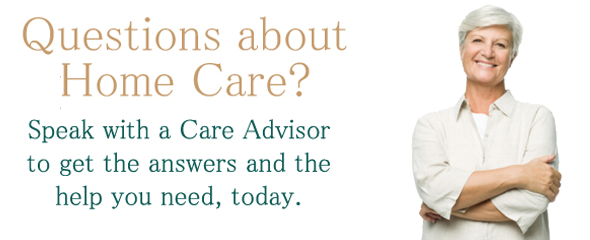While summer means pools, vacation, and tanning for most, it can also mean overheating and dehydration for others. Summer can be a dangerous season for all ages, but it can be especially dangerous, even fatal, for the elderly. One of the most common, yet deadly, concerns for seniors can be attributed to dehydration. Dehydration is the result of insufficient liquid in the body for proper functioning. Dehydration is a larger concern in the summer due to hot temperatures, which consequently leads to more sweating. If an adequate amount of water is not consumed to balance the water lost in perspiration, dehydration can set in.
In seniors, dehydration is much more common than younger people. The older you are, the less fluid that is contained in the body. Elder people have as much as 10% less liquid than that of a healthy adult. There are several symptoms and side-effects of dehydration that can be taken into consideration if you suspect it in an older family member or friend. Signs of dehydration include, but are not limited to: confusion, weakness, constipation, dizziness, fever, increased heart rate, weight loss, less urine, and disorientation. In more severe and progressed cases, one may experience sunken eyes, severe diarrhea, severe fever, and fainting spells. The sooner you suspect dehydration, the better. If these symptoms are visible and you suspect dehydration, it would probably be in your best interest to consult a doctor or other qualified physician. The sooner dehydration has been brought to one’s attention, the easier it is to manage and cure. If dehydration is permitted to progress in an older patient, there is a much higher chance of further medical complications including kidney failure, electrolyte imbalances, heart diseases, shock, coma, and even death.
Fortunately, dehydration is a preventable sickness that no one should fall to if the correct measures are taken. Be sure to drink plenty of water and other nutritious drinks that are high in electrolytes, sodium, and potassium. Even consuming foods that are high potassium are encouraged to be eaten, as these provide extra electrolytes for the body. In the summer, when dehydration becomes more of a concern, it is recommended to increase the amount of fluid intake even more. While the heat and sun can help lead to dehydration, it is also your own personal responsibility to make sure you and/or the people the around you maintaining healthy levels of liquid intake.
As your parents, friends, or other family grow older, it is a great idea to consider hiring home care or other professional help. If nursing homes are out of the question, it is certainly a good idea to find someone that can check on a loved older person daily. You yourself can provide daily checkups and visits to the household. If this is not an available option, there are definitely other people to turn. Professional home care is a service that is certainly on the rise now that more and more people from the “Baby Boomers” era are growing old and handicapped. While you may not need to hire someone for constant care, checkups are certainly a great idea and can help prevent accidents and other ailments, like dehydration. In order to prevent dehydration, have someone stop by daily to record weight and fluid intake. Daily monitoring can detect miscues in weight and BMI, which can lead to earlier detection of dehydration. Give the person providing the home care a schedule of fluid intakes at a given time interval. Dehydration is a preventable sickness, and should never have to threaten the lives of family, friends, and other elderly people
Home care counselors at Safe at Home Healthcare are available to talk with you about your in-home care needs including how to reduce caregiver stress while providing better, affordable care, including live-in care. We are an elder care agency providing Home Care in Naperville.
